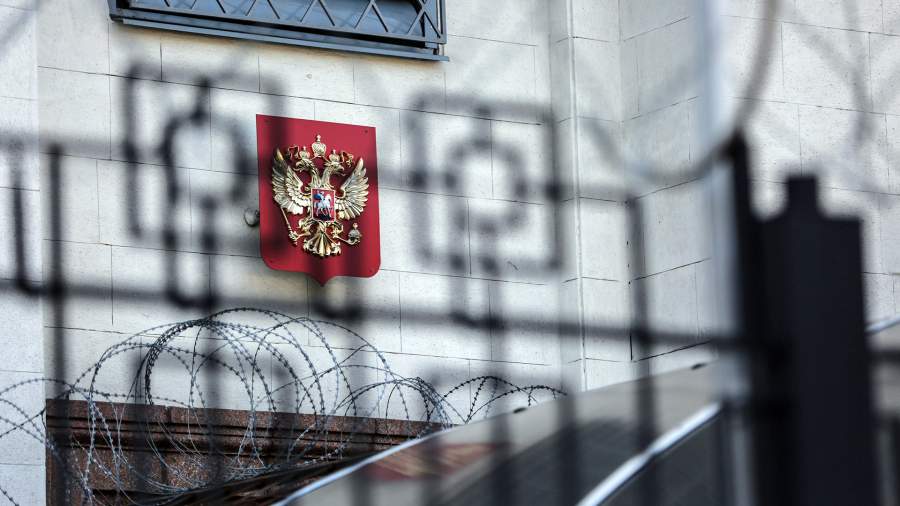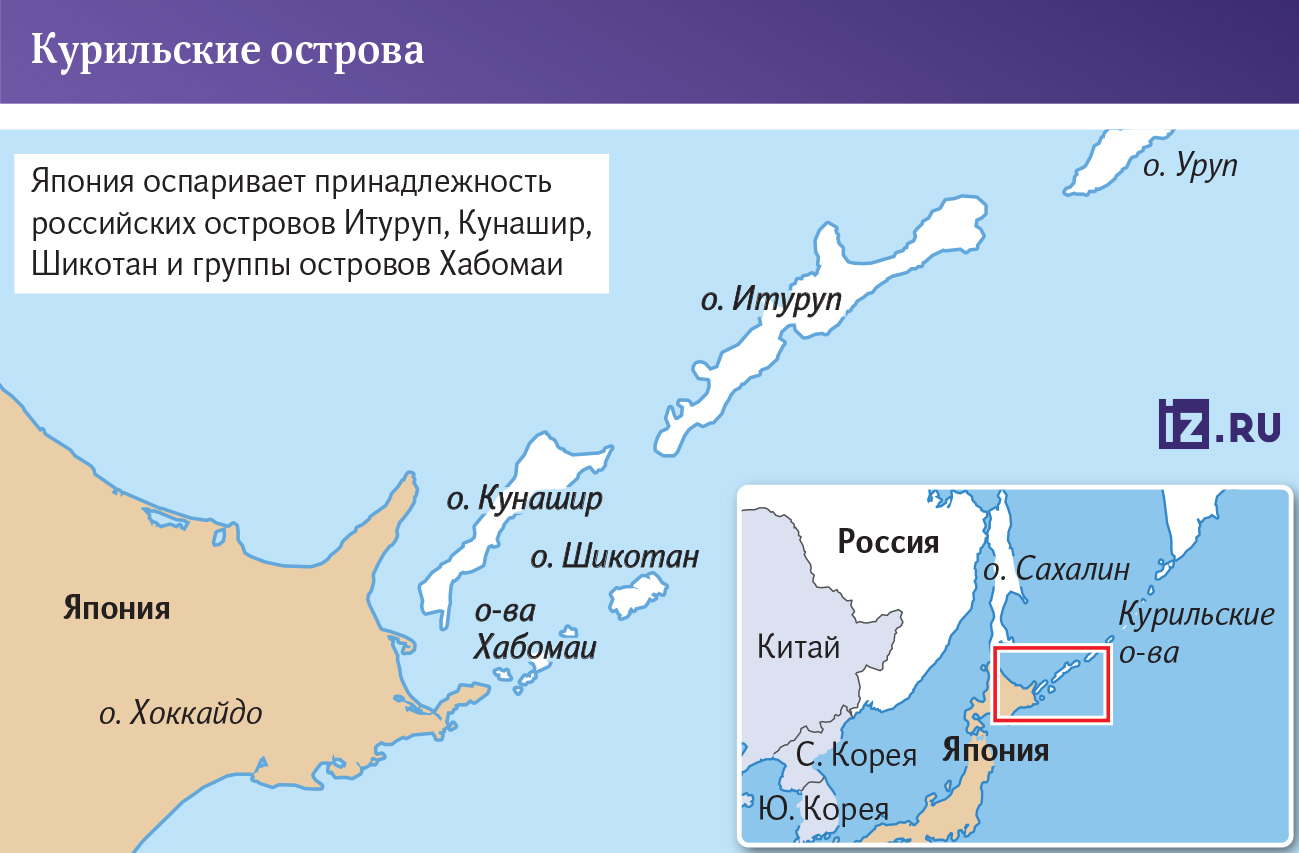Over time: Japan is changing its approach to concluding a peace treaty with Russia

Japan has changed its approach to concluding a peace agreement with the Russian Federation since the beginning of negotiations between Russia and the United States. Tokyo intends to resume negotiations on a peace treaty with Moscow as soon as "the situation permits," the Japanese embassy told Izvestia. Previously, there was no such rhetoric, and in Tokyo they only stipulated the intention to return to the discussion. This may be due to the fact that Japan is waiting for the end of the Ukrainian conflict to lift sanctions against Russia and create a more favorable situation for negotiations, experts say. The Russian side has repeatedly said that it is ready for dialogue only if Tokyo abandons its hostile course. At the same time, there has been no change in Japan's foreign policy so far.: It is reported that the country's authorities decided for the first time to transfer satellite data to the GUR of Ukraine.
Japan changes position on peace treaty with Russia
Over the past few years, the topic of the peace treaty between Russia and Japan has been periodically surfacing in the media field, despite the lack of negotiations on the Kuril issue. Now Japan, apparently, has somewhat changed its approach to concluding a peace agreement. This is evidenced by the new formulations of diplomats, which generally rarely change, especially if we take into account the scrupulousness and caution of representatives of Asian countries.
"We have paid attention to the statements of the Russian leadership, and we intend to resume negotiations on a peace treaty with our neighbor, Russia, as soon as the situation permits," the Japanese Embassy in Russia told Izvestia in response to a request from Izvestia.
We are talking about Vladimir Putin's November speech at the Valdai plenary session. Then the head of state drew attention to the fact that both countries are natural partners due to their neighborhood, and stressed that Russia is ready to build relations with Japan "for the next 5 and the next 50 years."
Earlier, the wording of the Japanese side on the peace treaty was different — there was no talk of any circumstances or conditions for resuming negotiations. At least, the official statements always stated only the intention to return to the discussion. So, in early April, the Japanese authorities made it clear in the annual report on diplomacy of the Foreign Ministry that they were determined to conclude a peace treaty with Russia, despite the difficult situation in relations.
At the same time, Tokyo still does not abandon its standard narratives, such as the fact that the southern Kuril Islands remain "native Japanese territories" that are now allegedly "under the illegal occupation of Russia." Such rhetoric appeared after the departure of Prime Minister Shinzo Abe and remains unchanged under three successive heads of government. However, the Japanese Embassy also repeated the theses of the official government.
— In order to build stable relations with Russia based on the rule of law, it is necessary to conclude a peace treaty between Japan and Russia by resolving the territorial issue between the two countries. As a result, the boundary between them will be defined. We are sticking to this course without changes," the diplomatic mission told Izvestia.

It is important to emphasize that Japan has repeatedly stated that it will maintain sanctions against Russia until the conflict in Ukraine is resolved. Therefore, the change in rhetoric regarding the peace treaty is probably related to the beginning of the Russian-American dialogue, which brings the crisis closer to resolution. Against this background, that is, "as soon as the situation permits," Tokyo probably expects to return to the peace treaty.
— Japan is waiting for the end of the Ukrainian conflict. Moreover, I can confirm that Japanese diplomats say in personal conversations that after the conflict ends, Japan will be ready to fully restore ties with Russia and lift sanctions," Vladimir Nelidov, associate professor at MGIMO and senior researcher at the Institute of Oriental Studies of the Russian Academy of Sciences, told Izvestia.
If the general atmosphere of relations improves after the conflict ends, negotiations on a peace agreement can indeed be resumed, the expert noted.
It is worth noting a certain adjustment in the Russian position. The Japanese Foreign Ministry's report was followed by a comment from the Russian side. According to Deputy head of the department Andrei Rudenko, Moscow now sees no prospects for negotiations with Tokyo until the Japanese authorities change their policy towards the Russian Federation. In particular, in 2023, the official representative of the Russian Foreign Ministry, Maria Zakharova, said that the topic of a peace treaty with Japan remained closed to Russia. Now the department immediately appeals to Tokyo's unfriendly position towards Moscow.
Since the middle of the 20th century, Moscow and Tokyo have been negotiating a peace agreement following the Second World War. The main obstacle remains the disagreement over the rights to the southern part of the Kuril Islands. After the end of the war, the entire archipelago was incorporated into the USSR, but Japan disputes the affiliation of Iturup, Kunashir, Shikotan and a group of small uninhabited islands. The Russian Foreign Ministry has repeatedly stressed that Russian sovereignty over these territories is beyond doubt, as it has an appropriate international legal framework.
Relations between Russia and Japan on the background of the Ukrainian settlement process
In general, the very fact of negotiations between Moscow and Washington makes if not Europe, then at least more pragmatic Asian states think about the possibility of normalizing relations. Thus, the prospect of Japanese companies returning to Russia, in particular Toyota and Mitsubishi, is already emerging. The media claim that Toyota, for example, organized a recently closed meeting with former dealers from Russia, hinting that the company is ready to return as soon as "the situation changes," which clearly echoes the position of official Tokyo.
— Japanese companies have been probing the ground since the progress towards a political solution to the crisis began. They are generally quite pragmatic and not very risk-averse. If the general situation with the work of foreign companies in Russia changes and the risks of secondary sanctions decrease, a general wave begins, then Japanese companies will be among those who will start returning," Vladimir Nelidov said.
At the same time, Tokyo publicly demonstrates a rather hostile policy. A few days ago, Japan accused Russia of strengthening its military presence in the southern Kuril Islands and protested to the Russian side over the exercises in the area of the islands disputed by the Japanese side, although the Russian Federation sent an official notification about their conduct.
On April 22, the media reported on Japan's agreement to transfer intelligence data to the GUR of Ukraine. It is specified that the Japanese iQPS Institute has signed an agreement on the integration of its satellite systems into the platforms of Ukrainian intelligence. In addition, Ukraine expects about $3 billion from Japan due to the proceeds from Russia's frozen assets under the G7 emergency lending program.
— One gets the impression that the Japanese foreign policy course towards Russia is inconsistent. On the one hand, in the context of Russian-American warming, common sense suggests the need to resume dialogue with Russia, which is important from the point of view of energy, food security, as well as the interests of automobile manufacturers who may suffer after the introduction of new US duties. On the other hand, Japan adheres to a wait—and-see attitude," Olga Dobrinskaya, senior researcher at the Center for Japanese Studies at the ISSA RAS, said in a conversation with Izvestia.
In such circumstances, there is no real prospect of improving Russian-Japanese relations, the expert stressed. At the same time, if Tokyo does soften its sanctions policy towards Moscow, the conclusion of a peace treaty is likely to reach an impasse anyway, Vladimir Nelidov believes. So far, this is impossible due to the position of the Russian side: Japan will again insist on the so-called northern territories, but Russia will never give them up. And the Japanese side is by no means complaisant.
In 2018, Vladimir Putin agreed to change the approach to negotiations and made a counteroffer — to sign the document by the end of the year "without any preconditions" and only then begin to resolve the issue of the Kuril Islands. The Japanese refused this option.
Переведено сервисом «Яндекс Переводчик»


